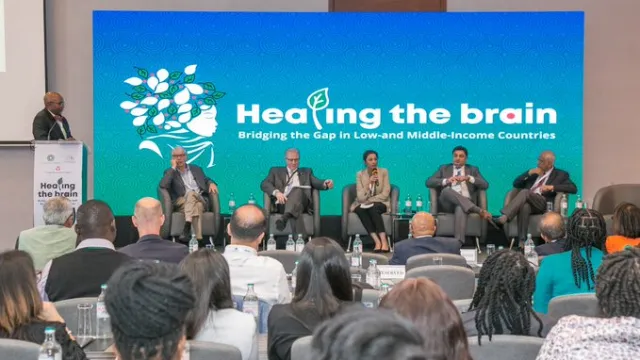Technology could help fill mental health helpline gap

Technology could help fill mental health helpline gap
Many Kenyans become aware of a friend or relative contemplating suicide through posts on social media. It is at this point that they typically make frantic calls, attempting to intervene in the hope that they are not too late.
Various tech-based platforms, where we spend most of our time, have become crucial in battling depression, mental health issues, and cases of suicide. Technology is also aiding those facing overwhelming pressure to find support groups and access help.
Risk of suicide
Some apps available for individuals struggling with mental health problems and depression include Crisis Text Line, providing free text messaging where users can chat with trained crisis counselors, and My3, allowing users to create a network of trusted contacts to reach out to when feeling suicidal, along with coping strategies and resources.
Another app is Suicide Safe, developed by the Substance Abuse and Mental Health Services Administration (SAMHSA), aimed at helping healthcare providers identify and assist patients at risk of suicide.
When it comes to utilizing technology for interventions, Kenya has several organizations actively engaged in suicide prevention, offering hotlines for individuals to get a listening ear through phone calls or text messages.
These organizations include Befrienders, Niskize, Emergency Medicine Kenya Foundation, Cognitive Behavioral Therapy-Kenya, and the Kenya Red Cross Society. Mathari National Hospital is Kenya’s only national referral mental health institution, and only 14 county hospitals across Kenya have a functional mental health unit. This highlights the need for technological solutions to bridge the gap and expand options for those struggling to cope with life.
Read also: Why mental health is misdiagnosed in poor countries
Suicide is complex
Suicide is a deeply troubling issue that affects individuals globally, and it is a complex problem often driven by overwhelming emotional pain. Mental health challenges breed feelings of hopelessness and isolation, impacting families, friends, and society as a whole. Recognizing the ripple effect of suicide emphasizes the importance of collective responsibility in addressing the issue.
Compassion and understanding are essential in illuminating the dark tunnel of suicide, and efforts should be made to create a society where mental health is destigmatized. Open conversations about mental health can help individuals feel less alone and encourage them to seek support when needed.
Raising awareness about suicide and its prevention is crucial, empowering individuals to recognize warning signs and risk factors in themselves and others. Additionally, providing mental health resources and services is crucial, and governments, organizations, and communities must work together to improve access to mental health care, including affordable counseling services, helplines, and mobile apps for those in need.



